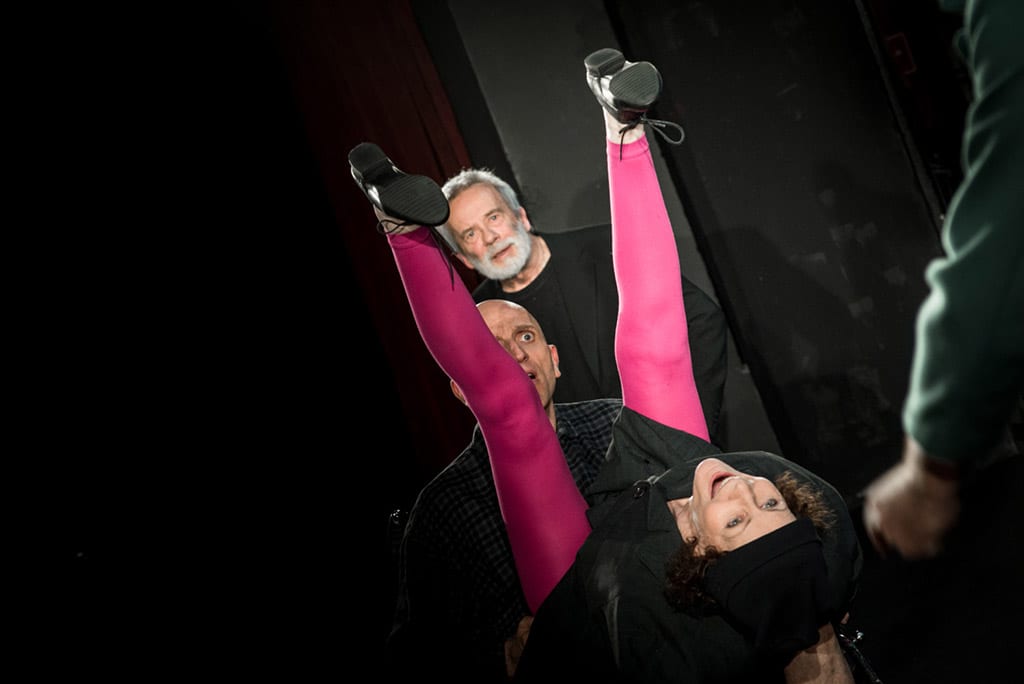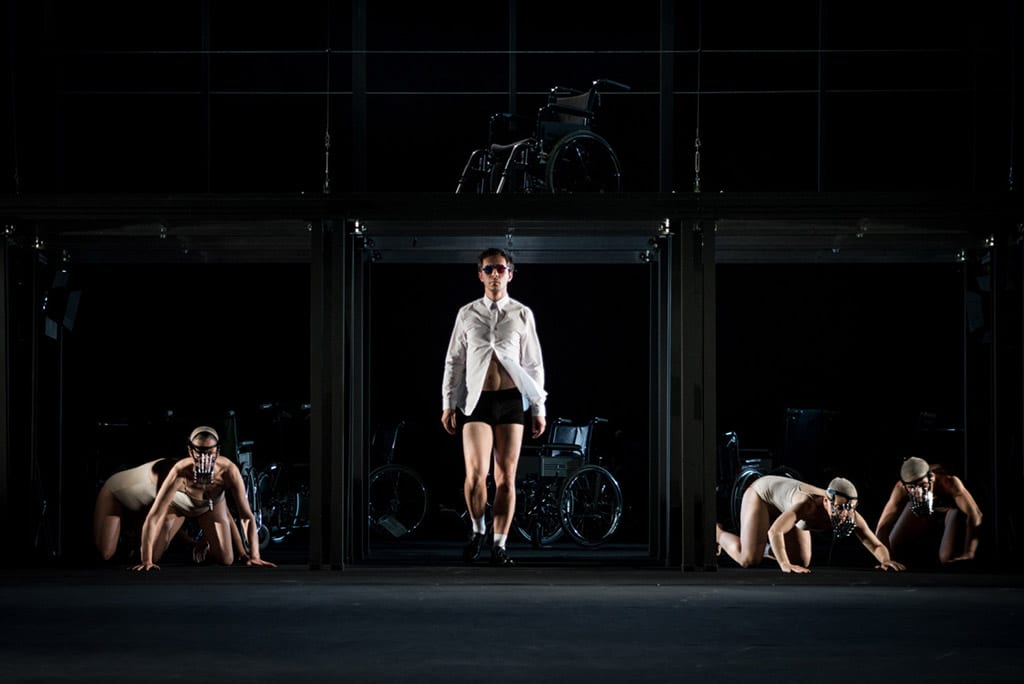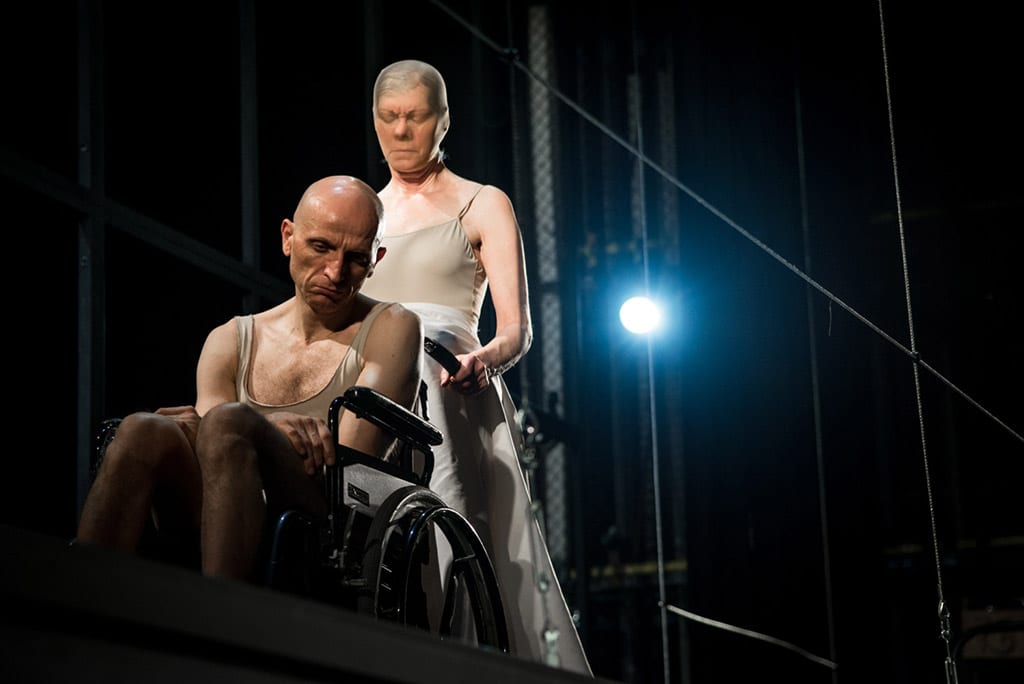There is no great storm at the beginning of Anna Augustynowicz’s production of The Tempest for Polish company Teatr Współezesny w Szezecinie. Instead, an elderly man paces up and down listening to the ship’s crew’s panicked dialogue via earphones as three air stewards show us where to find the emergency exits. It’s a bizarre start to a dark and muted Tempest that has a curious power despite its languidity.
Prospero, that small old man who never seems as powerful as Shakespeare’s protagonist, stays onstage throughout to watch the plot unfold. His assistant Ariel, a quirky spirit-cum-stage-manager, wears a shirt but no trousers and observes this weird world through 3D goggles. But although Ariel might be able to see in 3D, a lot of this Tempest feels strangely flat. Miranda, for example, seems almost entirely emotionless, even when she meets handsome, shipwrecked Ferdinand and promises to marry him. The comic scenes with Stephano and Trinculo barely raise a smile.
Elsewhere there are some intriguing directorial decisions. The stage is littered with wheelchairs, an integral but problematic part of the show’s aesthetic. A heavily pregnant woman – the spirit of Sycorax, perhaps – pushes one around on the platform above the stage, occasionally laughing maniacally. Actors sit in them and rock back and forth, maybe representing the tide or maybe conjuring an isle full of handicapped inhabitants. Caliban, a disabled ‘monster’ played by an able-bodied actor, races around in his own wheelchair, agonisingly stuttering out vowel sounds before delivering his speeches in perfect Polish verse. It feels more than a little disturbing for me, a theatregoer used to the UK’s careful political correctness when it comes to casting and staging disability, and the scene in which Caliban appears to be raped by the female Trinculo is profoundly uncomfortable. But perhaps this says more about me as an audience member than about the production. Placing Caliban in a wheelchair certainly makes his misplaced gratitude to the visitors, and Alonso’s remark “He is as disproportion’d in his manners as in his shape”, freshly and horribly poignant.
The ending is equally baffling, with Prospero delivering his final lines as if having some kind of stroke. This Tempest is disturbing and disjointed, Shakespeare’s play suffering a sea-change into something downright strange. But it’s also oddly mesmerising; while Anna Augustynowicz’s interpretation of the play may not be perfect, what it lacks in cohesion it makes up for in boldness – it’s certainly the most provocative Tempest I’ve ever seen.



